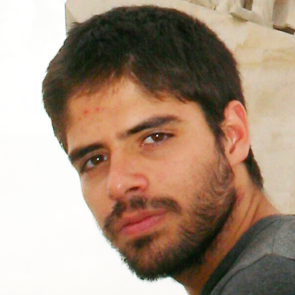Arbitrary and illegal detentions - Criminalization: A state policy to hinder the defense of Human Rights in Mexico
Geneva, Paris, Oaxaca, Dublin, Mexico City, December 16, 2016 – The report prepared jointly by 11 Mexican and international civil society organisations analyses the cases of five human rights defenders whose detentions have been declared arbitrary by the UN. The organisations demand immediate compliance with the UN Opinions and report that the detentions, torture and other human rights violations suffered by the defenders show a wider pattern of criminalisation of social protest in Mexico, which seeks to hindrance the defense of human rights.
Damián Gallardo Martínez and Enrique Guerrero Aviña have been arbitrarily detained for 1307 days; Librado Baños Rodríguez has been arbitrarily detained for 1208 days; Pedro Canché Herrera was arbitrarily detained for 638 days before his release on 29 May, 2015; and Nestora Salgado was arbitrarily detained for 941 days before her release on 18 March, 2016. These two are still waiting for full redress for the damages suffered and Nestora Salgado continues to be harassed and criminalised.
They are all human rights defenders and their detentions are linked to their legitimate activities for the defense of human rights.
They were all illegally arrested with no arrest warrant, imprisoned due to crimes that they had not committed, and they suffered the same pattern, including several forms of torture and ill-treatment at the time of arrest and within the detention facilities, isolation, forced disappearance before they were presented to the court, threats, detention, smear campaigns, lack of due diligence and lack of independence of the judiciary when declaring said detentions legal.
The UN Working Group on Arbitrary Detention has issued opinions stating that the five defenders are victims of arbitrary detention. The five opinions were issued within just over one year, between August 2014 and December 2015, an unprecedented time frame since it was the first time that the Working Group issued so many opinions on one country in such a short period.
Two years and five months after the first opinion was issued, three human rights defenders—Damián Gallardo, Enrique Guerrero and Librado Baños—remain under arbitrary detention and face constant and repeated human rights violations, including torture and ill-treatment, which have caused irreparable health damages.
We must mention the fact that these five iconic cases only represent a small fraction of the total amount of unpunished arbitrary detentions that take place in the country, but they are proof of the existence of a worrying pattern of criminalisation of social protest in Mexico.
This pattern of arbitrary detention of human rights defenders seems to reflect the desire to hindrance their work defending the human rights to which all Mexicans are entitled.
“We demand the immediate release of Damián Gallardo, Enrique Guerrero and Librado Baños, as well as the end of criminalisation and full redress for the five human rights defenders due to the many human rights violations suffered. The fact that Mexico has yet to comply with the UN’s opinions questions the country's commitment with the international community regarding human rights and shows the urgent need for structural reforms to prevent similar cases in the future”, stated the organisations.
This report is part of a national and international joint campaign, in which framework the participating organisations have already arranged meetings with international institutions such as the European Union and its Member States in Brussels, the United Nations and Swiss authorities in Geneva, as well as with national and international authorities in Mexico City and in Oaxaca. The case in Oaxaca is remarkable due to the fact that two of the defenders that remain detained, Damián Gallardo and Librado Baños, are from this state and civil society organisations have documented 77 cases of political prisoners in Oaxaca.




